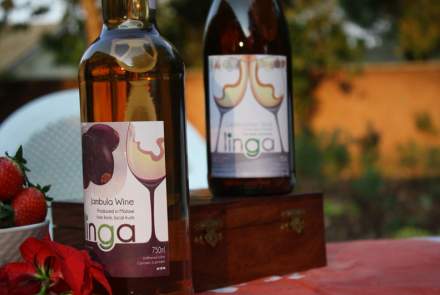Africa's wine region beyond South Africa is a diverse and vibrant landscape, rich in history and culture. This region, spanning countries such as Morocco, Algeria, Tunisia, and Ethiopia, offers a unique blend of traditional and modern winemaking techniques. In Morocco, the vineyards are nestled between the Atlantic Ocean and the Atlas Mountains, providing a unique microclimate ideal for viticulture. The country's wine production is a blend of indigenous grapes and French varietals, resulting in a unique fusion of flavors. Algeria, once one of the world's largest wine exporters during the French colonial period, continues to produce wine despite challenges. The high-altitude vineyards in the Atlas Mountains produce wines with a distinct character, often from Carignan, Cinsaut, and Grenache grapes. Tunisia, the northernmost country in Africa, has a wine history dating back to ancient times. Today, the country's wine production focuses on classic French varietals, including Syrah, Chardonnay, and Merlot. Ethiopia, while not traditionally known for wine, has seen a recent surge in production. The Rift Valley, with its volcanic soils and temperate climate, is ideal for growing grapes. The country is gaining recognition for its unique wines made from indigenous grape varieties. Overall, the wine region outside South Africa in Africa offers a diverse range of wines, reflecting the unique terroirs, climates, and grape varieties of each country. Despite challenges, the region continues to produce wines that are gaining international recognition for their quality and uniqueness.


